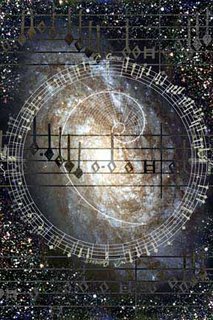Read: Isaiah Chapter 5
Listened to: Tchaikovsky’s 1812 Overture, the version with full chorus and children’s chorus
I do worry about the new shift in literary priorities, the replacing of “good old” classics with not-quite-so-good, maybe as old, certainly not classics! Where will the next generation of readers be if they read, in high school, Charlotte Smith’s “Beachy Head”
instead of Wordsworth’s “Prelude”; Felicia Hemans
to the exclusion of Coleridge; Frederick Douglas’s slave narratives
rather than Uncle Tom’s Cabin; and “the greatest masterpiece of Japanese prose narrative”
replacing Moby Dick? But there is not time to read both, I mean all of the above. Such students/readers would have a different perspective on literature, and consequently, somehow on life. They would likely value social awareness and influence over compositional skill—wait, hum, that’s already happened. They might probably search for issues of race and gender rather than spiritual elevation or exaltation of the human soul. Wait, again: we already do. In the halls of higher learning, this shift has already occurred.
In my graduate classes, that’s what we do. Now, let me explain. We do not read Smith to the exclusion of Wordsworth; we read them side-by-side, as a comparison. We do not talk about slavery rather than The Sublime; we talk about both. So that’s good. In that context we have time to look at both the old priorities and the new. And we already have that rootedness Rosie recommends.
What will happen when this shift makes its way down the academic ladder, I don’t know. Do teenage readers need “a rootedness in one particular tradition”? I wonder. I would be heartbroken if every reader knew
The Tale of Genji and not one knew
Paradise Lost. But is that just my preference? Let’s unpack that more.
What about globalization? Christians, with everyone, need to be ready for this new earth. We need to be aware of and sensitive to all the cultures and traditions we will encounter in our neighborhoods and all over the world. We hop on planes as easily now as our ancestors stepped into Model-Ts. No, more comfortably! So why not read about the heritage of the places we’ll step off into?
Well, we can never read it all. Once, up until the 18th century, I think, it was possible for one man (or woman) to have read everything,
EVERYTHING ever published. Some had done it. Coleridge is believed to have come close, though he lived into the printing boom. It is now not only impossible to read everything, it is not even close to possible to read everything even on one narrow subject. OK, maybe you could read everything about, say, organic okra farming, but you could never read everything about organic farming in general. And even excluding the internet (who does that now?), there are far too many books and periodicals. Even excluding periodicals, there are far too many books to read them all. One must choose. One is, of necessity, choosing to exclude thousands of books when one picks up one. When I picked up one particular biography on Tolkien last night, I was excluding all the others [unfortunately, for that one turned out to be no good as far as getting to know Tolkien the man]. So should young readers be trained to be snackers in literature? Read a little snippet of English poetry, a bite of Japanese prose, a tidbit of African folk tale, an appetizer of Australian fiction, an hoers d’ouevres of the American novel, a taste of Greek epic, a nibble of Latin epigram, a sip of Norse myth, a crumb of Saxon verse, a sampling of Asian poems, and a smorgasbord of modern plays? Or should they first be immersed in one tradition, so as to have some comparison to jump off of, some foundation to judge from?
Well, then the question becomes,
whose tradition should be privileged in American education? Ours, simply because we were born into it? Well, why not. It’s a good tradition. Does it boast anything over others? Well, maybe it boasts its long association with the Judeo-Christian tradition. Maybe we (Westerners, Americans, Christians) think our literature is worth teaching to our children because of its spiritually healthy origins and associations.
Or, to put the same thing in a negative way: Perhaps as Christians we are afraid of losing the great spiritual classics, the books from a time that was, apparently, more sensitive to the Holy Spirit than now. Perhaps we understand the loss to consciousness, the weakness of a worldview built without (for example) Milton’s perspective on sin, marital love, choice, divine predestination, the problem of evil, the possibility of Paradise, the necessity of the Son of God as intercessor, etc. There is something about reading these things in his fabulous blank verse that brings them to life. It’s not better than reading the Bible, but it might be more memorable, or more vivid, or more fresh and new. So, yes, Christians can always read the Bible, but won’t we lose something without Milton?
That said, our “Western Canon” does not include Jewish writing, or a lot of the early Christian fathers, or the mystics (generally). And the new shift towards finding out overlooked authors often turns up very spiritual characters, such as Jones Very and Alice Meynell.
Part of me wants to end this by saying: The Holy Spirit will take care of Himself. God is big enough to be found through any literary tradition, and He will not let truth disappear. Reading, say the writings of Confucius instead of the Book of Proverbs, or even Poor Richard’s Almanac, will not make Proverbs any less true, or the writings of Confucius anything more than sometimes right and sometimes wrong thoughts of a wise but fallen human being. So should we teach any and all literature and let God look after the formation of young minds?
Or should we approach this from another point of view? “Train up a child in the way he should go, and when he is old he will not depart from it.” Train up a child surrounded by the books that are rooted in the spiritual tradition s/he must be rooted in, and then s/he will grow up with a taste for The Good. Maybe. Then, as you say Rosie, then teach readers as they grow older to dip into every tradition for the flavours of the exotic, the tastes of the foreign.
I’d love to hear what other people have to say. I’d love to know what somebody thinks who was raised on the literature of another culture all together and thinks that has contributed only positively to his/her Christian worldview.





